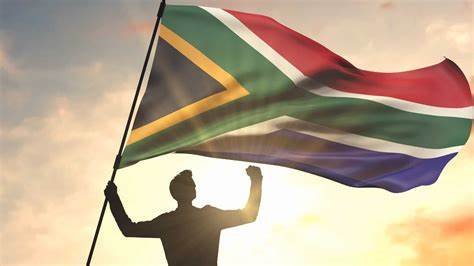Celebrating Heritage Day: Honouring the Contributions of the Muslim Community in South Africa
Introduction
Heritage Day in South Africa is a time for all citizens to reflect on the diverse cultures, traditions, and histories that make up the fabric of our nation. Among the many communities that have shaped South Africa’s identity, the Muslim community stands out for its significant contributions to the social, economic, and legal landscape of the country. As we celebrate Heritage Day, it is essential to acknowledge the role of the Muslim community in enriching our national heritage, particularly through the lens of Islamic Finance, Islamic Law, and broader contributions in commerce and law.
The Muslim Community: A Rich Heritage
The history of the Muslim community in South Africa dates back several centuries, with roots in both the slave trade and subsequent migrations from the Indian subcontinent, Southeast Asia, and the Middle East. Over time, the Muslim community has become an integral part of South Africa’s multicultural society, contributing to various aspects of national life, from education and social justice to commerce and law.
Muslims in South Africa have preserved their rich religious and cultural heritage, passing down traditions that have influenced not only the community itself but also the broader South African society. This heritage is reflected in the vibrant Islamic culture, evident in architecture, cuisine, language, and religious practices. On Heritage Day, it is important to recognize and celebrate these contributions, which add to the diversity and richness of the South African identity.
Islamic Finance: An Ethical Alternative for Economic Empowerment
One of the most notable contributions of the Muslim community to South Africa’s economic landscape is the development of Islamic Finance. This system of finance, which operates in accordance with Islamic principles, offers an ethical alternative to conventional banking. It is based on values such as justice, equity, and social responsibility—principles that align with the broader goals of economic empowerment and financial inclusion in South Africa.
Islamic Finance prohibits interest (riba), instead emphasizing profit-and-loss sharing and asset-backed financing. This system promotes transparency, fairness, and ethical investment, making it particularly relevant in addressing some of the economic challenges faced by South Africa, such as inequality and financial exclusion. For many in the Muslim community, Islamic Finance provides a way to participate in the economy without compromising their religious beliefs. But its appeal extends beyond Muslims, offering all South Africans an ethical financial system that prioritizes social welfare alongside profit.
The growing presence of Islamic banks and financial institutions in South Africa is a testament to the success of this model. These institutions not only serve the Muslim community but also attract clients from diverse backgrounds who are seeking ethical investment opportunities. On Heritage Day, we can recognize the role of Islamic Finance in fostering a more inclusive and equitable economy, one that reflects the values of fairness and social justice that are central to South Africa’s heritage.
Islamic Law: A Framework for Justice and Integrity
Islamic Law, or Shariah, is another significant contribution of the Muslim community to South Africa’s legal landscape. While Islamic Law primarily governs personal and family matters for Muslims, its emphasis on justice, integrity, and moral responsibility has broader implications for the legal system as a whole.
In South Africa, where pluralism is a defining feature of the legal system, Islamic Law coexists alongside other legal traditions, contributing to the diversity of legal practices. The application of Islamic Law in family law, inheritance, and other civil matters offers a model of legal governance that is rooted in ethical principles. This approach to law not only serves the Muslim community but also enriches the South African legal system by providing alternative perspectives on justice and fairness.
Legal professionals who are knowledgeable in both Islamic Law and South African law are uniquely positioned to navigate these intersections, ensuring that the rights and responsibilities of all citizens are respected. As a private higher education institution, we see it as our responsibility to integrate Islamic Law into our legal curricula, providing students with a comprehensive understanding of how different legal systems can coexist and complement one another.
Heritage Day: Reflecting on the Contributions of the Muslim Community
Heritage Day is an opportunity to reflect on the contributions of all communities to the South African identity. For the Muslim community, these contributions are manifold. From the development of Islamic Finance and the promotion of ethical banking practices to the integration of Islamic Law into the broader legal system, the Muslim community has played a vital role in shaping the South Africa we know today.
As we celebrate Heritage Day, it is important to recognize that the preservation and promotion of our diverse heritage require ongoing effort and commitment. Education plays a key role in this process. By incorporating the principles of Islamic Finance and Islamic Law into our educational programs, we can ensure that future generations understand and appreciate the contributions of the Muslim community to South Africa’s heritage.
Conclusion
The Muslim community in South Africa has made significant contributions to the nation’s economic, legal, and cultural landscape. As we celebrate Heritage Day, we honor these contributions, recognizing the role of Islamic Finance and Islamic Law in promoting ethical governance, social justice, and financial inclusion.
At our institution, we are committed to fostering an educational environment that respects and celebrates the rich heritage of the Muslim community and all other communities in South Africa. By doing so, we prepare our students to become leaders who are not only skilled professionals but also culturally aware and socially responsible citizens. On this Heritage Day, let us reaffirm our commitment to preserving and promoting the diverse heritage that makes South Africa a vibrant and dynamic nation.
Munirah Osman
For assistance with completing a Shariah-compliant Islamic Will or for further advice on Wills, Inheritance, and Estate Planning, please contact the Amal help desk at 031 207 3381 or email – info@amal.co.za.
















